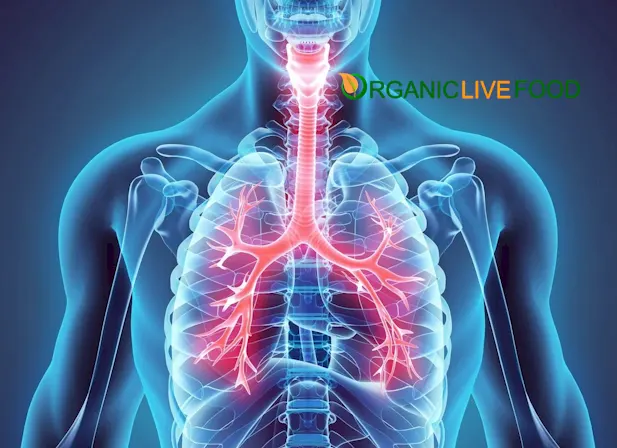In today's world of cars and planes, an atmosphere filled with pollution, maintaining optimum health of our respiratory system has become a top priority for many individuals.
One crucial aspect of overall well-being is the health is how our respiratory system plays a vital role in ensuring the efficient exchange of oxygen and carbon dioxide in our body, which is essential for our survival.
By incorporating regular exercise, maintaining a balanced diet, avoiding exposure to environmental pollutants, practicing good hygiene habits, and identifying and avoiding respiratory triggers, you can take significant steps towards optimizing your respiratory health.
Being aware of the potential risks associated with smoking and air pollution while seeking natural remedies when needed can further support your efforts in maintaining a healthy respiratory system. Remember to prioritize regular check-ups with healthcare professionals to ensure early detection of any potential health issues or concerns with your lungs or breathing difficulties.
Having a healthy respiratory system is crucial for several reasons:

Here's what is needed for maintaining a healthy respiratory system:
Summary of what to do to keep your respiratory system healthy
To maintain respiratory health despite environmental challenges like pollution and toxins, adopting several proactive measures is essential.
Firstly, minimizing exposure to polluted air by staying indoors during peak pollution times and using air purifiers can help reduce respiratory irritants.
Regular exercise not only strengthens respiratory muscles but also enhances lung capacity and efficiency. Practicing good hygiene, such as washing hands frequently and avoiding touching the face, can lower the risk of respiratory infections.
Additionally, quitting smoking and avoiding secondhand smoke are crucial steps in protecting lung health.
Consuming a balanced diet rich in fruits, vegetables, and antioxidants can support the body's natural defense mechanisms against pollutants.
Lastly, staying hydrated helps keep the respiratory system's mucous membranes moist, aiding in the expulsion of toxins.
Combining these lifestyle habits with routine check-ups and screenings can promote overall respiratory wellness despite environmental challenges.

Can smoking really affect my respiratory health?
Yes, smoking is one of the leading causes of respiratory diseases such as chronic obstructive pulmonary disease (COPD) and lung cancer. The harmful chemicals present in cigarettes can damage the airways and lungs over time, reducing lung function and increasing the risk of developing various respiratory conditions.
How does air pollution impact our respiratory system?
Air pollution contains harmful particles and gases that can irritate the airways, leading to inflammation and damage. Prolonged exposure to pollutants can increase the risk of developing asthma, COPD, or other respiratory disorders. It is crucial to minimize exposure by staying indoors on days with poor air quality or wearing masks in heavily polluted areas.
Are there any natural remedies for maintaining a healthy respiratory system?
While maintaining overall health through regular exercise and a balanced diet is essential for a healthy respiratory system, certain natural remedies may provide additional support. Herbal teas like peppermint or ginger tea have been traditionally used for their soothing effects on the respiratory tract. However, it is important to consult with a healthcare professional before trying any new remedies.
Can stress affect our breathing patterns?
Yes, stress has been known to impact breathing patterns. During periods of heightened stress or anxiety, individuals may experience shallow breathing or hyperventilation. These irregularities in breathing patterns can disrupt oxygen-carbon dioxide exchange in the body temporarily.
Is it necessary to get regular check-ups for maintaining good respiratory health?
Regular check-ups are essential for detecting any underlying issues early on and ensuring optimal lung function. Routine screenings such as spirometry tests can assess lung capacity while identifying potential problems at an early stage. It is recommended to consult with a healthcare professional for personalized advice on the frequency of check-ups based on your health history and risk factors.
What are the symptoms of respiratory infections such as the common cold, flu, and pneumonia?
Respiratory infections like the common cold, flu, and pneumonia often share symptoms but vary in severity. Common cold symptoms typically include a runny or stuffy nose, sore throat, cough, and mild fatigue. In contrast, the flu presents with similar symptoms but tends to be more severe, often accompanied by high fever, muscle aches, headaches, and fatigue. Pneumonia symptoms include cough, fever, difficulty breathing, chest pain, and in severe cases, coughing up blood. While these infections share overlapping symptoms, the severity and duration can help distinguish between them, with pneumonia typically being the most serious and requiring prompt medical attention.
What are the effects of allergens on the respiratory system, and how can allergies be managed?
Allergens can trigger various reactions in the respiratory system, leading to symptoms such as sneezing, coughing, wheezing, nasal congestion, and difficulty breathing. In individuals with asthma, allergens can exacerbate symptoms and trigger asthma attacks. Allergies occur when the immune system overreacts to harmless substances like pollen, dust mites, pet dander, or certain foods. Managing allergies involves minimizing exposure to allergens through measures like using air purifiers, regularly cleaning bedding and carpets, keeping windows closed during high pollen seasons, and avoiding known triggers. Additionally, medications such as antihistamines, decongestants, nasal corticosteroids, and allergy shots (immunotherapy) can help alleviate symptoms and reduce the body's immune response to allergens.
How does COVID-19 continuing affects on the respiratory system be remedies, and what measures can be taken to prevent its continuing respiratory issues?
Continuing effects of COVID-19 on the respiratory system, such as long-term lung damage and persistent respiratory symptoms like shortness of breath, cough, and fatigue, can be managed through pulmonary rehabilitation programs focusing on breathing exercises, physical therapy, and medications to improve lung function. Additionally, ongoing monitoring and treatment by healthcare professionals are crucial. Preventive measures to mitigate continuing respiratory issues involve vaccination to reduce the risk of severe illness and long-term complications, practicing good hygiene, wearing masks in crowded or indoor settings, maintaining social distancing when appropriate, and adhering to public health guidelines to limit the spread of the virus. Regular exercise, a balanced diet, and avoiding smoking or exposure to secondhand smoke also support overall respiratory health and can aid in recovery from COVID-19-related respiratory issues.
What is chronic obstructive pulmonary disease (COPD), and how is it managed?
Chronic obstructive pulmonary disease (COPD) is a progressive lung condition characterized by persistent respiratory symptoms such as shortness of breath, cough, and excessive mucus production. It commonly results from long-term exposure to irritants like cigarette smoke, air pollution, or occupational hazards. Management of COPD focuses on relieving symptoms, slowing disease progression, and improving quality of life. Treatment typically involves lifestyle changes such as smoking cessation, regular exercise, and dietary improvements. Medications like bronchodilators and corticosteroids help alleviate symptoms and reduce inflammation in the airways. Pulmonary rehabilitation programs provide education, exercise training, and support for patients to manage their condition effectively. In severe cases, supplemental oxygen therapy or surgical interventions like lung volume reduction surgery or lung transplantation may be considered. Regular monitoring and follow-up with healthcare providers are essential for managing COPD effectively.
What are the differences between obstructive and restrictive lung diseases?
Obstructive lung diseases, such as chronic obstructive pulmonary disease (COPD) and asthma, are characterized by airflow limitation due to narrowed or obstructed airways, making it difficult to exhale air from the lungs. In contrast, restrictive lung diseases, like pulmonary fibrosis and sarcoidosis, involve a decrease in lung volume or capacity due to stiffness or reduced elasticity of lung tissue, making it challenging to fully expand the lungs during inhalation. While obstructive diseases primarily affect the ability to exhale, restrictive diseases impair both inhalation and exhalation. Additionally, obstructive diseases often result from inflammation and narrowing of the airways, while restrictive diseases involve damage or scarring of lung tissue, leading to reduced lung compliance. Treatment approaches and prognosis may vary depending on the specific type and severity of the lung disease.
What are the triggers of asthma and treatment options and can it be healed completely?
Asthma triggers vary from person to person but commonly include allergens (such as pollen, dust mites, and pet dander), respiratory infections, air pollution, smoke, exercise, cold air, and certain medications or chemicals. Treatment options for asthma aim to control symptoms and prevent exacerbations. This typically involves using inhalers containing bronchodilators to relax the airway muscles and corticosteroids to reduce inflammation. Long-term control medications, such as inhaled corticosteroids or leukotriene modifiers, may also be prescribed. While asthma cannot be cured, it can be effectively managed with proper treatment and lifestyle adjustments, allowing individuals to lead active lives with minimal symptoms.
